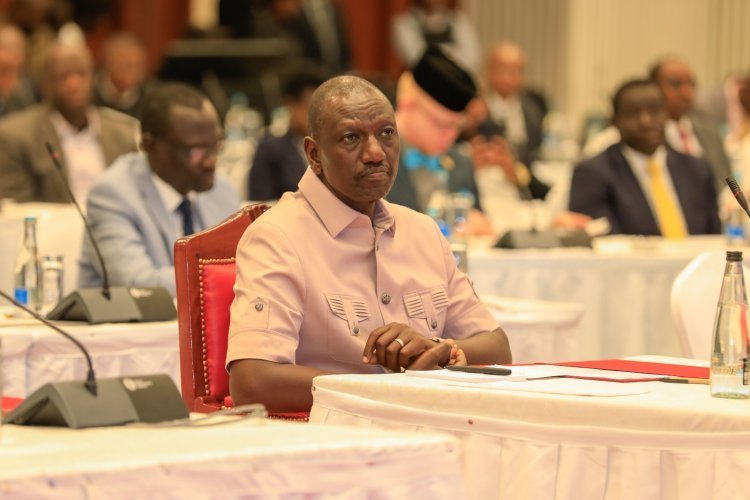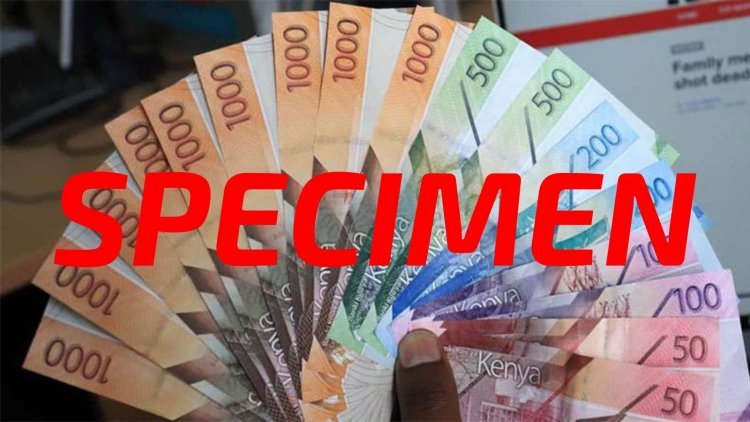Kenya Govt To End G2G Oil Deal With Saudi Arabia Companies In December
The G2G deal which was launched by President Ruto in April 2023 was billed as Kenya's solution to stabilise the shilling against the dollar.

The government of Kenya under President William Ruto will exit the government-to-government deal it signed with Saudi Arabia oil companies in December 2024.
In a recent report published by the International Monetary Fund (IMF), the National Treasury indicated that Kenya intends to end the deal after it failed to stabilise the Kenyan currency, which has been losing out against the dollar.
The G2G deal which was launched by President Ruto in April 2023 was billed as Kenya's solution to stabilise the shilling against the dollar.
The deal agreed between Kenya and three national oil exporters from the Gulf, provides for six-month credit for oil imports, backed by letters of credit issued by participating commercial banks.

A car being fuelled at a petrol station. /FILE
It was brokered by Kenya’s Ministry of Energy and Saudi Aramco, Abu Dhabi National Oil Corporation Global Trading (ADNOC) and Emirate’s National Oil Company (NOC).
"The government intends to exit the oil import arrangement, as we are cognizant of the distortions it has created in the FX market, the accompanying increase in rollover risk of the private sector financing facilities supporting it and remain committed to private market solutions in the energy market," the IMF report read in part.
The government further confessed that the deal was a short-term measure to help ease foreign exchange pressures. An extension was secured which runs to December 2024, but according to the Treasury, the market has not eased.
"As an interim measure to help ease FX pressures, we introduced a new oil import arrangement in April 2023. It replaced the previous open tendering system, under which oil import dues were payable upon five days of delivery, often creating undue FX market pressures," the government says.
Kenya admits that the deal soured immediately saying that there was low demand which saw the import volumes dip.
"In the first 6 months, the actual average monthly import volumes fell short of the monthly minimums agreed under the arrangement. This was due to lower demand from our domestic market as well as from the regional reexports markets," the government said.
The G2G deal replaced the open tendering system that allowed oil marketers to be paid upon five days of delivery. This created unnecessary pressure on the foreign exchange market.
In turn, the Saudi oil deal provided a six-month credit for oil imports. According to the Treasury, the average monthly import volumes failed to attain the monthly minimums agreed under the arrangement.
The move by the government to abandon the deal comes after months spent by President Ruto defending the deal as claims regarding graft in the G2G deal surfaced.
Last year, Ruto indicated that the Kenyan currency would stabilise as fuel marketers would purchase products in Shillings and ease pressure on the dollar.
"In fact, in the next month or so, the dollar will come down phenomenally. In my estimation, the exchange rate will come down to Ksh120,” Ruto stated in April 2023.
However, nine months later, the Kenya shilling exchange rate clocked to Ksh162 to the dollar, surpassing the Ksh160 mark in a worsening decline against the US-based currency.
Notably, Azimio la Umoja leader, Raila Odinga in November 2023 demanded Ruto to cancel the G2G deal, claiming Ruto told the country that some four men in his administration had put together something “phenomenal” in Kenya.
The former Prime Minister alleged that Ruto masked the deal as a government project to help Kenyan Companies, Gulf Energy, Galana Oil Kenya Ltd, and Oryx Energies Kenya Limited avoid paying taxes.
"There was no G-to-G. Kenya did not sign any contract with Saudi Arabia or the UAE. Only the Ministry of Energy and Petroleum signed a deal with state-owned petroleum companies in the Middle East. Why Ruto chose to characterize the deal as a G-to-G is the first red flag that points to mischief in this deal.
"We now know that the characterization of this deal as G-to-G was meant to shield the three Kenyan companies from paying 30 per cent corporate tax," he revealed.
He also highlighted the bad fruits that emerged from the deal such as the cost of oil which was yet to come down and that the Kenyan shilling was continuing to record a bad performance against the dollar.
While claiming that the deal was corrupt, Raila demanded full disclosure and accountability, terming the deal as corrupt and rotten to the core and an element of state capture by Ruto and company and a conspiracy against the country.
Other than keeping the cost of oil permanently high in Kenya, Raila claimed that the deal was costing the country dearly in terms of trade in petroleum with landlocked neighbours.
He claimed that in August, four months after the deal, the government allowed Oryx Energies to sell oil at prices that had been inflated by 17 per cent as Oryx is the supplier of diesel to other oil marketing companies (OMCs) in the country. He claimed that the excuse was the delay in discharging fuel at the jetty.
"This shady business model is being deployed by all the companies that were retained in the Ruto deal. They buy at low prices, delay in discharging, then ask to be allowed to offload at higher prices and the cost is passed to consumers," he went on.
The Azimio leader also revealed that the deal accelerated diplomatic tiffs and broken trade agreements with neighbouring landlocked countries such as Uganda.
Therefore, Raila demanded that other than Ruto cancel the deal, he should revert to the Open Tender System which ensured a guaranteed supply of petroleum products.







